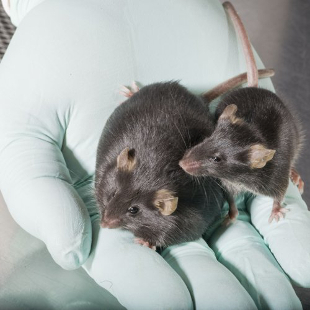A drug called fexaramine triggers a physiological reaction in mice akin to what happens after the animals eat a big meal: releasing bile acids into the intestines to digest food, according to a study published this week (January 5) in Nature Medicine. Obese mice on a high-fat diet given a daily dose of fexaramine for five weeks stopped gaining weight.
“This pill is like an imaginary meal,” study coauthor Ronald Evans, director of the Gene Expression Laboratory at the Salk Institute for Biological Studies in La Jolla, California, said in a press release. “It sends out the same signals that normally happen when you eat a lot of food, so the body starts clearing out space to store it. But there are no calories and no change in appetite.”
In addition to helping the animals lose weight, fexaramine which activates the farnesoid X receptor (FXR) that normally switches on at the beginning of a meal lowered blood sugar and cholesterol levels and increased the amount of brown—or “good”—fat. And because it doesn’t enter the bloodstream, fexaramine should have fewer side effects that some existing weight-loss medications. The researchers are now working to move the drug into human trials, according to the release.







